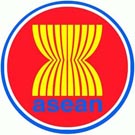Thailand calls for more "people-centred" ASEAN
 Cha-am, Thailand - The 14th Summit of the Association of South-East Asian Nations (ASEAN) was kicked off Saturday with a call by host Thailand to make the grouping more people-centred, a goal enshrined by the newly-adopted ASEAN Charter.
Cha-am, Thailand - The 14th Summit of the Association of South-East Asian Nations (ASEAN) was kicked off Saturday with a call by host Thailand to make the grouping more people-centred, a goal enshrined by the newly-adopted ASEAN Charter.
"We need to make ASEAN more people-centred," Thai Prime Minister Abhisit Vejjajiva said in his opening address to the South-East Asian leaders summit held this weekend in Cha-am, 130 kilometres south-west of Bangkok.
"It is not for the rich and the powerful, but for the people of our community," Abhisit said.
This is the first summit of the 42-year-old grouping to be held under the ASEAN Charter, a document that seeks to turn ASEAN into a real community with a common anthem, various legal entities and common goals.
"Protection and promotion of human rights and fundamental freedoms is a key feature of our community," Abhisit said. "The establishment of an ASEAN human rights body by this year, the first ever of its kind in the region, will be a big step in this direction."
ASEAN, launched in Thailand on August 8, 1967, now includes Brunei, Cambodia, Indonesia, Laos, Malaysia, Myanmar, the Philippines, Singapore, Thailand and Vietnam, countries at very different levels of economic and political development.
Aspirations for a more "people-centred" ASEAN received a reality check Saturday morning when at the first meeting between ASEAN leaders and representatives of ASEAN civil society groups, Myanmar's and Cambodia's leaders vetoed the presence of representatives from their countries.
Despite being barred from the 30-minute meeting, Abhisit and Thai Foreign Minsiter Kasit Piromya met with the two ousted representatives, Khin Ohmar from Myanmar and Pen Somony from Cambodia, as a gesture.
"This was the first dialogue interface between ASEAN and civil society representatives and ASEAN leaders," meeting chairman Thitinan Pongsudhirak said. "It went as well as can be expected. It can only go up."
One of the main tasks of this weekend's summit was to draft the terms of reference for setting up an ASEAN human rights body, which will be finalized in July and start its work in October.
A draft was approved by the foreign ministers Friday, but it remains open to change.
The terms exclude the proposed body from investigating human rights abuses in ASEAN members if they are not welcomed by the host country, raising questions about it's effectiveness as a protective mechanism.
"There needs to be a balance between our two pillars of promotion and protection," said Sihasak Phuangketkeow, chairman of the ASEAN high level panel on the human rights body. "It has to be evolutionary."
Sihasak brushed off criticism that the body will just serve as a showboat for ASEAN, a region rife with human rights abuses.
"I don't think it is a PR exercise," Sihasak said. "We want to do things that can be done. The best way to prevent human rights abuses is to promote human rights awareness in the region." (dpa)